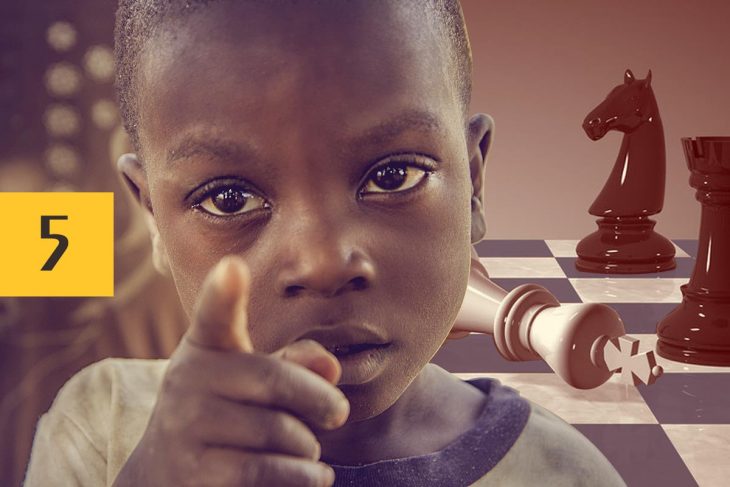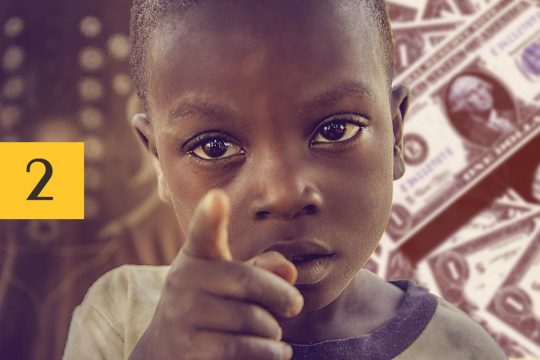After nearly twenty years being touted as the one international court that put victims in a central position, the International Criminal Court’s own Trust Fund for Victims had only delivered reparations to just under 300 victims in only one case by 2020.
It was obvious from the start that reparations were going to be complex. As described in parts 1 and 2 of this series, and as reflected in the 2020 report by independent experts into the ICC, the Trust Fund for Victims (TFV) has not been delivering for victims of mass atrocities. While recognising that theirs is a complex task, the experts describe the ICC’s “conceptual and procedural processes for reparations” as “laden with complexity and uncertainty, which gravely affects the victims’ rights to meaningful participation and reparations”.
Where, though, does blame lie for the court’s inability to deliver on its promises to victims? Have expectations been set too high or not high enough? Is a voluntary board sufficient for oversight? Have experts failed to point out the problems over the years? Have Trust staff failed to deliver? Or have judges failed to be consistent in their demands?
This is a tangled web to unpick. We will consider each group in turn. Even the experts are not absolutist in assigning responsibility to one party. But they are clear in their recommendations that the TFV is not up to the task, that it should not continue in its current form, and that the lion’s share of the problems lie in the managerial failures.
Management failure
Those who monitor the way victims have been treated at the court tend to agree. Carla Ferstman of Essex Law School, and former head of the NGO Redress, says “egos and excesses” with “competing visions” have gotten in the way of figuring out workable plans, especially on court-ordered reparations. Luke Moffett of Queens University Belfast describes “so much infighting within the organisation”. Lorraine Smith van Lin who previously examined the TFV’s reparations work for the NGO Redress considers that “internal management, structural, logistical challenges” have hampered the Funds work. They became obvious, she says, during the first reparations award for victims of Democratic Republic of Congo warlord Thomas Lubanga, when “the Trust Fund had clearly … very little real idea about how to manage a reparations mandate”.
But are these failures due to circumstances beyond the TFV’s control? Apart from the inevitable wreckage wrought by the current Covid pandemic to everyone’s plans during 2020, it does not appear so.
Again and again, the experts drive home the point that the management was inadequate. Smith van Lin points out that in a commercial business, managers would be fired or step down if they failed to deliver results.
The TFV may indeed have taken on more than it could manage, the experts write: “TFV’s own admission that its concurrent engagement in three reparations proceedings and implementation (Lubanga, Katanga and Al Mahdi) constituted a severe strain on its modest capacity”. But how could it fail to anticipate how much work would be needed to switch its gears up and tackle the formalities of reparations? Smith van Lin argues that junior staff should not be blamed. Again and again, the experts drive home the point that the management was inadequate: “Clear and formal delineation of roles and responsibilities need to be established”. Smith van Lin points out that in a commercial business, managers would be fired or step down if they failed to deliver results.
Blaming the states
Then there’s the role of the Fund’s Board – a group of high-level volunteers. Have they failed in oversight?
The expert report says they were relatively “powerless”, and it was difficult for them to be more effective “without guidance from the [Trust Fund] Secretariat” to the extent that without the resources to consistently get documents to them and translate them, their job of effective oversight “over all operations and activities of the Secretariat was impossible”. The experts’ recommendation: “The [Assembly of States Parties, ASP] should also review the level of involvement and oversight it wishes the Board of Directors to apply, and resource it accordingly.”
The Trust Fund is created by the ASP and they have direct oversight. What were they doing for the last 10 years? So I would dial up the blame all the way up to the states."
States though have continued to support and fund the TFV, both via the main ICC budget and by one-off donations. But where have been debates on the floor of the annual meeting on the details of the Fund’s work? Have the various committees and subcommittees effectively scrutinized it? It certainly took many years before the independent oversight mechanism was invoked. Smith van Lin agrees: ”The structure starts from the ASP and this is what people forget…The Trust Fund is created by the ASP and they have direct oversight. This is the first time that they've finally decided to look behind these reports and say, wait a second, there should be more accountability. What were they doing for the last 10 years? So I would dial up the blame all the way up to the states.”
The judges’ share of responsibility
And how about the judges? They have made reparation orders, and as with so many aspects of the court’s work, the lack of coordination and harmony has also been reflected in the contradictory orders from different chambers. That legal tussle between the Fund, judges and even the ICC’s Registry, where other organs dealing with victims are situated, has left its mark. The successful delivery of those court orders in the first reparation cases is still not a fait accompli.
The chair of the Fund’s board, Mama Kouyate Doumbia, says these complications have had real impact: “If the files linger on the court’s desk for them to give their advice on this or that programme that impacts our work, it impacts our capacity and even our competences even if the problem does not come from us”.
Not forgetting forgetful NGOs
Some would also spare a thought, while pointing fingers all round, at the NGOs who have consistently sold the court as a space where victims will finally get true reparative justice. And the outside experts who have not sounded the alarm on time. Is it possible that they have all been too invested in trying to defend the court from malicious critique to be prepared to point out the faults in the system?
Smith van Lin is refreshingly open: “We should share the blame for not holding some of these organisations to account more. There is a certain latitude that you can give in terms of, you know, waiting and wanting the system to work. But then there comes a point when you have to focus on transparency and accountability. If you don't see the thing working, then you begin to hold those that you put in office to account.”
So, what next?
Ferstman believes there is a way forward: “There is enough global expertise out there on how to implement reparations programmes that can be drawn upon; the different organs of the Court and the Trust Fund need to work pragmatically and in a goal-oriented fashion to get the job done.” Alina Balta, who has spent her academic career so far studying this reparation system also thinks it can work: “I think the ICC is the best system to provide reparations for victims, in theory. But in practice…the practise is lagging behind for sure.”
can't simply ignore criticisms on the basis that it is independent. Independence is not a license to do what one wants."
Bring the victims on board
For Ferstman transparency is a core issue. “All over the NGO and aid community there is a progressive realisation of the need to bring the beneficiary group into decision-making at the central policy level as well as in the implementation; it is time the TFV and its Board learnt that lesson and became more responsive and accountable to beneficiary groups. It can't simply ignore criticisms on the basis that it is independent. Independence is not a license to do what one wants; independence still requires transparency and accountability, and consultation.”
There are even those who argue that some activities of the Fund itself put blame on the victims. Leila Ullrich has been writing a book while based at Queen Mary University of London, called the Blame Cascade. She claims that in the TFV’s own assistance programmes, “victims are blamed for the violence they suffered”. She quotes from an ICC Victim Participation Video from 2013 where the TFV says it “supports victims by funding peace schools ‘in which communities amongst themselves try to find solutions for the root causes of conflict in a way that is non-violent’”. And in another TFV publication from 2012 she points to the social cohesion projects which are aimed at “shifting the mindset of young people”. She concludes that in some of its assistance, the Fund has perpetuated an attitude whereby “it is the victims who must learn to be peaceful… glossing over legitimate grievances and structural causes of conflict”.
No acknowledgment
What changes can the Fund make?
The TFV director Pieter De Baan is hopeful: “There is a lot going on in the kitchen in the past two years to get to a place in which we can be more confident to play the role that we've been mandated to play by the states.” In its latest strategic plan [2020] though, the Fund - again - suggests that we are still “in the early stages” with “judicial reparations [as] a relatively novel feature” with few “lessons learned from previous and concurrent international(ized) criminal tribunals”, in comparison with international criminal law where “blueprints” existed for the judicial or administrative development of the court.
Essentially, they argue they need time to develop even more benchmarks, more criteria to monitor, more measures to judge impact, and “future meaningful ways of redressing and repairing victims’ harm and ensuring that the goals of court-ordered reparations are achieved.” And of course they say they even need time to sort out their relationships with the rest of the court, the judges, the registry, governments and their own implementing partners. So, for now, the foot-dragging appears to continue, with no real acknowledgment that perhaps mistakes have been made, nor that structures must change.







